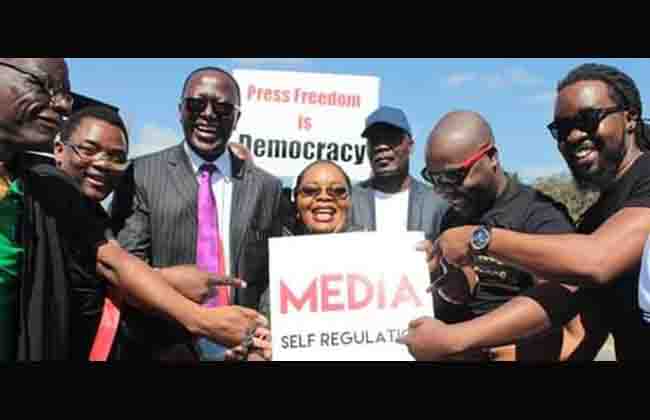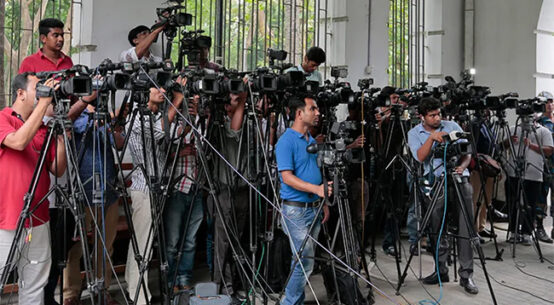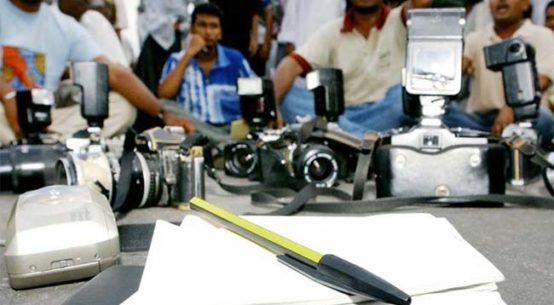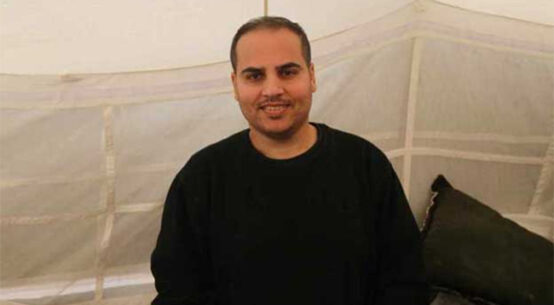
After years of seeking press freedom, the media in Zambia wants to self regulate, a yardstick to enhancing professionalism after years of relentless search for autonomy.
In an effort to champion ‘Access To Information’ (ATI) and promote media freedom for both private and state-owned media houses since early 2000, the media in the Southern Africa state formally seek Government’s endorsement to enact a law to provide latitude for total independence for professionalism to flourish and enhance media sustainability.
In a communiqué dubbed: “media self-regulation backed by law”, and endorsed by over 220 media personnel practitioners have agreed on self regulatory modus operandi under the law unlike being ‘statutory regulated by Government’, vulnerable to interference.
The various media personnel want to emulate other media houses among other countries, Kenya, South Africa, Zimbabwe, Sweden, Denmark, the United Kingdom, which regulate themselves under an ‘agreed law’ with Government, arguably to avoid “gagging” the press.
“We the journalists…having listened and deliberated on the matters at hand, namely adoption of a preferred mode of media regulation for Zambia we do hereby unanimously say we prefer that the media continue to manage and control its affairs through an improved media self-regulation model backed by law and as suits our prevailing conditions.” read the communiqué in part.
The resolution comes on the heels of the Governments-past and present have perpetually advocated of the press to seek to regulate itself and enhance professionalism in its conduct and give practitioners credibility, comparable to other professionals-lawyers, accounts, architectures, among others.
The Government, having considered the unanimous voice of the practitioners formally accepted to back the decision to self-regulate and sought to adopt and support the Kenyan “hybrid” model of regulation – whereby an independent self-regulatory council is created and ‘backed by law’.
Arguably, the decision by the media practitioners in the 18-million populated democratic state and as scrutinized and defined by legal experts say, “Media self-regulation is a joint endeavor by media professionals to set up voluntary editorial guidelines and abide by them in a learning process open to the public.
By doing so, the independent media accept their share of responsibility for the quality of public discourse in the nation, while fully preserving their editorial autonomy in shaping it.”
Media self-regulation is about establishing minimum principles on ethics, accuracy, personal rights and so on, while fully preserving the editorial freedom of the media to report and what opinions to express.
Accordingly, self-regulation helps the media to respond to legitimate complaints and concerns and where they are found wanting the media self-corrects its mistakes in a trial-and-error way. Self-regulation therefore is a voluntary media peer review of the media’s performance.
It is a pledge by quality-conscious media professionals to maintain a dialogue with the public through a complaint mechanism that is set up to deal with justified concerns in a rational and autonomous way.
By promoting standards, self-regulation helps maintain the media’s credibility with the public. This is particularly welcome in new democracies, most of which are also new to an independent press. Media self-regulation helps convince the public that the free media are not irresponsible.
Additionally, self-regulation protects the right of journalists to be independent, and to be judged for professional mistakes not by those in power but by their colleagues.
On correcting of factual errors or violations of personal rights by the press, satisfaction over the judgments of self-regulatory bodies lessens pressure on the judiciary system to sanction journalists.
Self-regulation mechanisms are voluntary, and each media house and its journalists participate without being forced. On the other hand, most alternatives to self-regulation have been labelled as “statutory regulation”, as they derive their regulatory powers from the statutes, that is, the law or an act of parliament.
Some schools of thought argue that ‘statutory’ refers to any regulation that is implemented by law. It is commonly confused as a synonym for ‘state regulation’, which would be the performance of regulatory activities directly by government bodies.
According to lecturer and media law expert at the University of Zambia, Elizabeth Mweene Chanda, ‘statutory’ refers to any regulation that is implemented by law though commonly confused as a synonym for ‘state regulation’, though may not be directly implying ‘interference’
But by implication, if the Government passes the journalists’ desires to self regulate by law, it will be expected that under self-regulation, all practitioners and media houses will be without exception be compelled to “comply with the decisions made and tow the professional ethics”
All media practitioners and all associated groupings of interested parties will have to operate and be guided by the Zambia Media Council (ZAMEC) to ensure laws are adhered to the latter.
And Broadcasting and media minister who is also chief Government spokesperson, Chushi Kasanda urges the media to exercise restraint under the newly found freedom of expression. She pledged expeditious enactment of the law and avoid overlaps in its professionalism.
The media organizations and journalists should set and supervise professional standards and codes of practice. The Government also wants media owners to recognize that ownership entails a commitment to inform citizens about matters of public interest and not merely to advance partisan or personal interests. The Government envisions enacting the law before mid 2022
It remains the media’s responsibility to ensure Journalists are adequately trained and that their personal interests do not distort their reporting of public issues. The Government reaffirms and prioritises editorial independence of the national Broadcaster ZNBC as well as all other media houses to allow for free-flow of credible information.
And Ms. Kasanda envisions the media to establish credible complaint systems to provide members of the public with effective redress for unprofessional behavior conduct.
“We believe that media organizations and journalists should set and supervise their professional standards and code of justice. Journalistic should report accurately and fairly, issue corrections whenever they get the facts wrong, allow a fair opportunity to reply when appropriate and subject to legitimate public interest, respect the right of the people mentioned”




